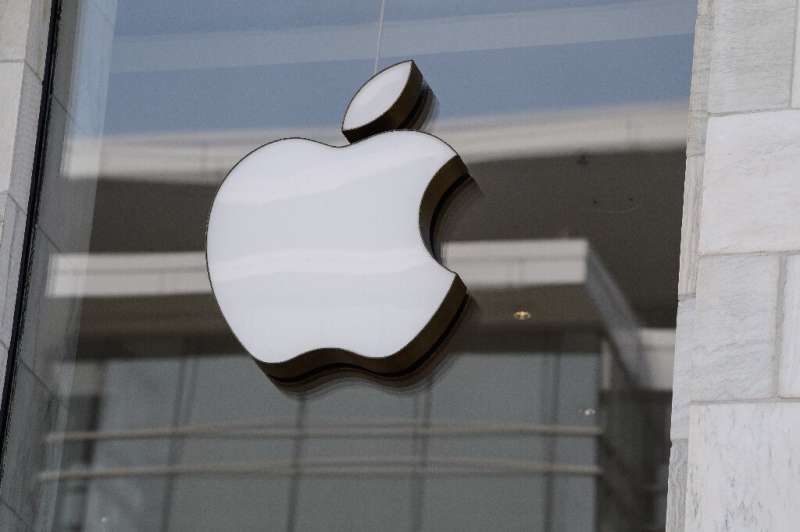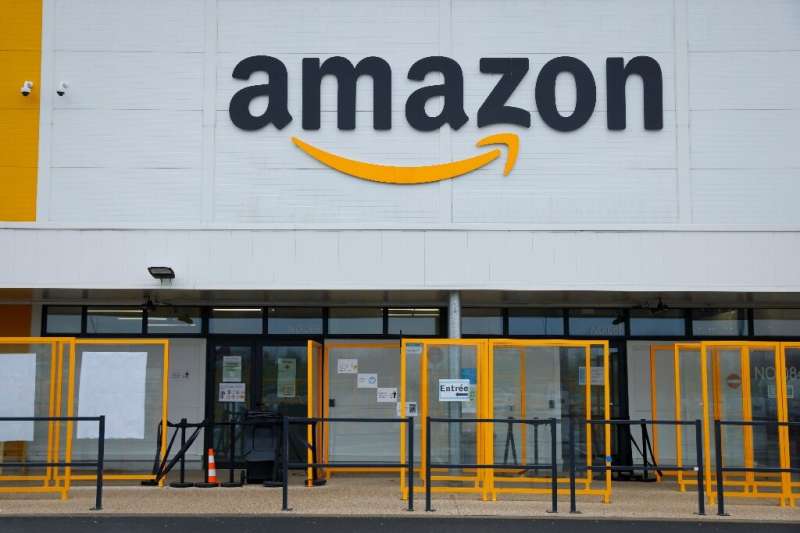Apple reported better-than-expected profits on robust consumer demand for its devices and services even as revenue growth slowed while it navigated an ongoing semiconductor supply crunch.
Tech giants that saw good times during the pandemic are dealing with a "hangover" compounded by inflation and the war in Ukraine, analysts have said after earnings released this week.
Amazon, Apple, Meta and Google-parent Alphabet released figures for the first quarter of this year that showed they are not impervious to turbulence roiling global markets.
"I want to acknowledge the challenges we are seeing from supply chain disruptions driven by both COVID and silicon shortages to the devastation from the war in Ukraine," Apple chief executive Tim Cook said on an earnings call.
"We are not immune to these challenges," he continued.
While the US tech titans brought in billions of dollars and reported earnings in line with lowered expectations, some saw shares slip on forecasts that the troubles were not going away soon.
The firms may be feeling a bit of a "post-pandemic hangover," according to eMarketer analyst Paul Verna.
"While it wasn't a party for these companies, the pandemic did boost their business in major ways," Verna told AFP.
Rapid growth seen during the pandemic was not sustainable, and tech firms should have better anticipated that, he added.
Warehouse and shipping capacity Amazon ramped up as online shopping surged early in the pandemic is being under used as inflation hits budgets and Covid-19 sidelines warehouse workers.
Amazon's 'excess capacity'
Amazon posted its first quarterly loss since 2015, dragged down by its investment in electric truck maker Rivian, and warned of continuing challenges in the months ahead.
The e-commerce giant said it lost $3.8 billion in the first three months of the year, plunging into the red on a $7.6 billion loss in value of its stock in Rivian.
Sales at the online retail colossus were in line with analyst expectations, but chief executive Andy Jassy warned of testing times in the months ahead.
He cited pressure from the war, inflation, labor costs, and the pandemic.
Amazon expects its sales in the current quarter to tally between $116 billion and $121 billion, with foreign exchange rates working to its disadvantage.
The tech titan's AWS cloud computing unit, not yet a major revenue source for the company, grew at a cooling pace to $116.4 million in the first three months of last year.
"This was a tough quarter for Amazon with trends across every key area of the business heading in the wrong direction and a weak outlook" for the second quarter, said Insider Intelligence principal analyst Andrew Lipsman.
"Amazon will need to find a way to recharge growth in its commerce business in the coming quarters."
Amazon made big investments in its logistics network as online sales soared during the pandemic, only now to have "excess capacity" as inflation tightens household budgets and COVID-19 causes warehouse workers to miss shifts, executives said on an earnings call.
Google and Facebook are seeing marketers be more cautious with advertising budgets due to inflation.
TikTok competition
Apple reported better-than-expected profits amid continued robust consumer demand, but warned that the China COVID-19 lockdown and ongoing supply chain woes would dent June quarter results by $4 to $8 billion.
The iPhone maker registered record revenues for the quarter, but executives said the difficulties of the pandemic have returned with a vengeance since the reporting period ended.
"Supply constraints caused by COVID-related disruptions and industry-wide silicon shortages are impacting our ability to meet customer demand for our products," Chief Financial Officer Luca Maestri said on a conference call with analysts.
The impact will depend on the speed of the ramp-up of production in the Shanghai area, where factories have recently begun to reopen after a COVID-19 lockdown, Cook told analysts.
Sales of iPhones still powered Apple's money-making machine.
Alphabet and Facebook parent Meta rely on digital advertising, and their earnings reports showed that marketers are becoming more careful with their budgets.
Both Silicon Valley firms vowed to be more mindful of costs.
Alphabet and Meta are looking to ride the TikTok-led trend of streaming video snippets with similar offerings of their own, called respectively Shorts and Reels, but that format is tough to monetize.
Insider Intelligence principal analyst Paul Verna told AFP that while Google's search business remained a "bright spot" at the company, earnings at video-sharing website YouTube were "a big miss."
"TikTok has become a significant competitive threat," Verna said of the pressure on YouTube.
© 2022 AFP


























